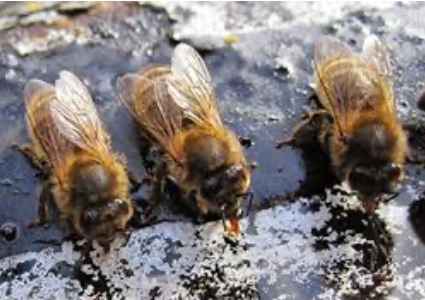Polling

Suggest an important issue not listed in this sub-category (). (Maximum 60 Characters)
Livestock antibiotics

We are very dependent upon honeybees to pollinate many of our crops such as apples, almonds, avocados, cherries, strawberries, blueberries, broccoli, soybeans and more. These pollinators provide at least $25 billion in economic benefits to our farmers. We now have about 2.6 million bee colonies, down from 3 million in 1990 and less than half of the 6 million we had in 1947. Colony collapse disorder (CCD) is a phenomenon in which worker bees from beehives abruptly disappear. A recent CCD study released by our Agriculture Department citied exposure to pesticides, pests and pathogens as the probable causes of honeybee decline. Pesticide manufacturers claim their products are not the cause of CCD but advocates say science shows otherwise. A class of pesticides known as neonicotinoids, a neuroactive insecticide chemically similar to nicotine, is strongly suspected to be a main cause of CCD. Neonicotinoids, or neonics as they are called, impair a honeybee’s neurological functions including memory, cognition and behavior – scrambling their navigation function and ability to forage.
Scientists say nicotine-addicted bees prefer food tainted with neonic pesticides to non-treated food and their studies have shown bees to be as susceptible to nicotine addiction as humans.
Pending Legislation: H.R.4079 - Saving America’s Pollinators Act of 2021
Sponsor: Rep. Earl Blumenauer (OR)
Status: House Subcommittee on Biotechnology, Horticulture, and Research (Agriculture)
Chair: Del. Stacey Plaskett (US-VI)
Scientists say nicotine-addicted bees prefer food tainted with neonic pesticides to non-treated food and their studies have shown bees to be as susceptible to nicotine addiction as humans.
Pending Legislation: H.R.4079 - Saving America’s Pollinators Act of 2021
Sponsor: Rep. Earl Blumenauer (OR)
Status: House Subcommittee on Biotechnology, Horticulture, and Research (Agriculture)
Chair: Del. Stacey Plaskett (US-VI)
Poll Opening Date
December 6, 2021
Poll Closing Date
December 12, 2021
Democracy Rules respects the privacy of your information.
See PRIVACY STATEMENT
See PRIVACY STATEMENT